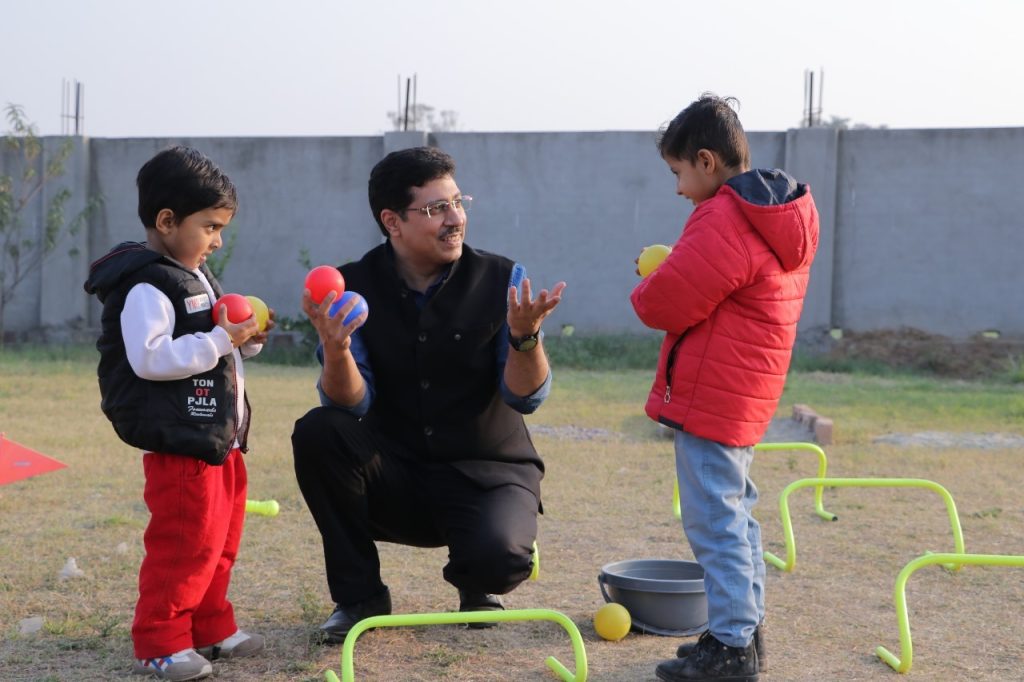Understanding and Managing Stereotypical Restrictive Repetitive Behaviors in Autism Spectrum Disorder

Stereotypical restrictive repetitive behaviors are a hallmark of Autism Spectrum Disorder (ASD). These behaviors can manifest in various forms, including repetitive movements, adherence to routines, and intense focus on specific interests. Understanding these behaviors and learning how to manage them effectively is crucial for enhancing the quality of life for individuals with ASD.
What are Stereotypical or Restrictive Repetitive Behaviors?
Restrictive repetitive behaviors encompass a wide range of actions that are often divided into two categories: lower-order and higher-order repetitive behaviors. Lower-order behaviors include repetitive motor movements such as hand flapping, rocking, spinning, and head banging. These are often referred to as stereotypies. Higher-order behaviors involve a preference for sameness, routines, and rituals, as well as intense, narrow interests. For example, a child may insist on following a strict daily schedule or have an all-consuming interest in trains or numbers. These behaviors tend to increase when the child is excited, overwhelmed, fearful, aggressive, anxious, or frustrated.
Why Do Children with ASD Engage in These Behaviors?
There are several theories about why children with ASD exhibit stereotypical behaviors. One common explanation is that these behaviors provide sensory stimulation or help regulate sensory input. For instance, a child may flap their hands to fulfil a sensory need or rock back and forth to soothe themselves. Another theory is that restrictive repetitive behaviors are a way for children to exert control over their environment, particularly when they feel overwhelmed or anxious. Engaging in familiar routines and behaviors can provide a sense of predictability and security. Additionally, some of these behaviors may be linked to difficulties in cognitive flexibility, making it challenging for individuals with ASD to shift their attention or adapt to new situations.

How to Handle, Stop, or Reduce Restrictive Repetitive Behaviors
Managing these behaviors requires a multifaceted approach, often involving the collaboration of professionals and parents. Here are some strategies:
1. Behavioral Interventions: Applied Behavior Analysis (ABA) is a widely used approach that involves identifying the triggers of stereotypical behaviors and systematically teaching alternative, more functional behaviors. ABA therapists work with children to reduce unwanted behaviors and reinforce positive behaviors through structured interventions.
2. Sensory Integration Therapy: Occupational therapists use sensory integration techniques to help children manage sensory input more effectively. This can involve activities such as swinging on a sensory swing to provide vestibular input, playing with textured objects to enhance tactile experiences, or engaging in deep-pressure activities like rolling in a mat or using weighted blankets. These activities provide appropriate sensory experiences, helping to reduce the need for self-stimulatory behaviors. These therapies must be always implemented with the advice and continuous monitoring of qualified professionals.
3. Environmental Modifications: Creating a structured and predictable environment can help reduce anxiety and the need for these behaviors. Visual schedules, clear routines, and calm, organized spaces can make a significant difference.
4. Alternative Activities: Engaging children in activities that fulfil their sensory needs or provide mental stimulation can reduce the occurrence of stereotypical behaviors. For example, fidget toys, stress balls, or physical activities can be used as alternatives.
5. Professional Guidance: It is essential to work with qualified professionals who can assess the specific needs of the child and develop an individualized intervention plan. A multidisciplinary team comprising occupational therapists, speech therapists, special educators, and behavior therapists can provide valuable insights and strategies.
Role of Parents at Home
Parents play a crucial role in managing restrictive repetitive behaviors. Consistency between home and therapy settings is vital for effective intervention. Here are some tips for parents:
1. Observe and Identify Triggers: Keep a log of when and where stereotypical behaviors occur to identify patterns and triggers. This information can be valuable for therapists.
2. Implement Strategies at Home: Work closely with therapists to implement recommended strategies and interventions at home. Consistency is key to success.
3. Use Positive Reinforcement: Encourage and reward alternative behaviors. Praise and rewards can motivate children to adopt new behaviors.
4. Create a Structured Environment: Maintain a predictable routine and provide visual supports to help the child understand what to expect.
5. Educate and Support: Educate yourself about ASD and restrictive repetitive behaviors. Join support groups and connect with other parents to share experiences and strategies.
Conclusion Stereotypical or restrictive repetitive behaviors in children with ASD can be challenging, but with the right approach, they can be managed effectively. Understanding the reasons behind these behaviors and working with professionals to develop tailored interventions is crucial. Parents, through observation, consistency, and collaboration with therapists, play a pivotal role in helping their children navigate these behaviors and improve their overall quality of life.
Dr. Atul Madaan (Autism Specialist)
MAAP, MBA, MPhil (Clin. Psy), PhD (Psy)
Operational Head & Clinical Psychologist- Care For Autism (CFA)
8383849217
www.autismspecialist.co.in
𝐂𝐀𝐑𝐄 𝐅𝐎𝐑 𝐀𝐔𝐓𝐈𝐒𝐌 (CFA)
One-of-a-Kind Assessment & Remedial Training Centres for Special-needs Children.
📌 Ludhiana : 114, Green Field, Kochar Market Road, Near National Lab
9646443200
📌 Jalandhar : Hoshiarpur Road, Mubarkpur Shekhein Under Bridge, Near Railway Crossing,
9779725400
#autismdoctorludhiana #autismdoctor #autismdoctorinludhiana #autismspecialist #bestautismdoctor #bestautismdoctorinludhiana #autismbestdoctor #bestautismcenter #bestautismconsultant #autismconsultant #autismludhiana #autismspecialistinludhiana #atulmadaan #dratulmadaan #autismtreatmentludhiana #autismtreatment #careforautism
Contact
Ludhiana
114, Green Field, Kochar Market Road, Near National Lab, Ludhiana (Punjab), India +91 96464 43200
Jalandhar
Hoshiarpur Road, Sheikhen Pind (Under Bridge), Near Railway Crossing, Jalandhar (Punjab), India +91 97797 25400
